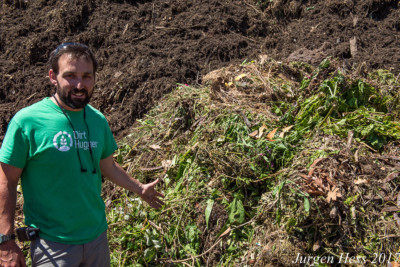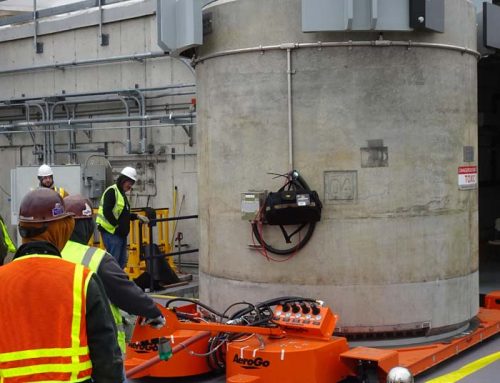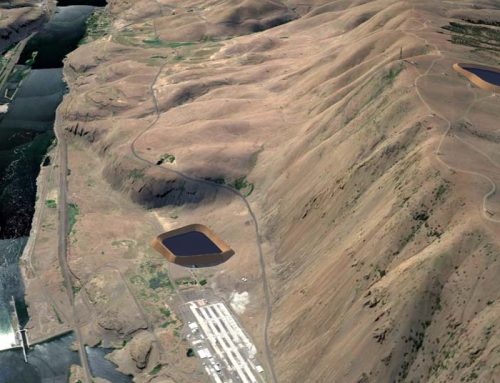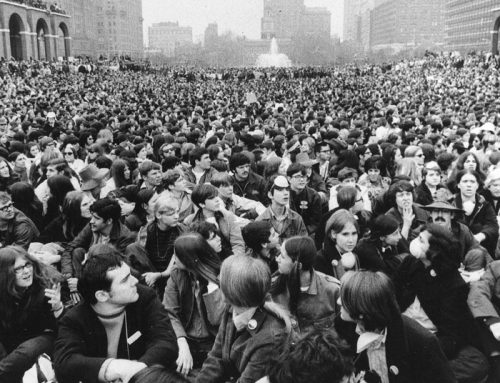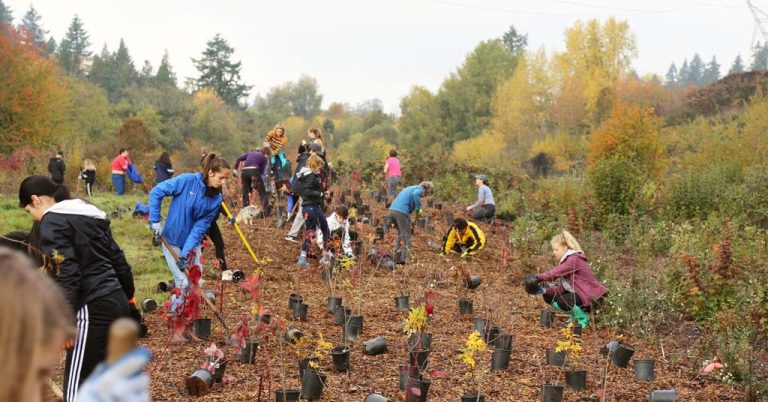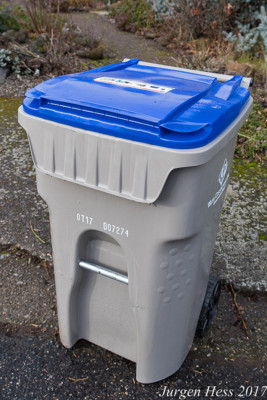 By Susanne Wright and Susan Hess. China has had enough and it’s not taking it anymore: our recycling, that is. January 1, 2018 China began a ban on imported post-consumer plastic and unsorted paper. Until recently, China was the world’s largest recycler of paper and plastics, which it used as raw material for making consumer goods. But due to high levels of contaminants in the materials it receives from the United States, it enacted a full ban.
By Susanne Wright and Susan Hess. China has had enough and it’s not taking it anymore: our recycling, that is. January 1, 2018 China began a ban on imported post-consumer plastic and unsorted paper. Until recently, China was the world’s largest recycler of paper and plastics, which it used as raw material for making consumer goods. But due to high levels of contaminants in the materials it receives from the United States, it enacted a full ban.
Most recycle bins are for commingle items: newspapers, magazines, office paper, aluminum and tin cans, plastic milk jugs and shampoo bottles. All mixed together. Commingled. But wrong things in the bin contaminate the material.
“There are two types of contamination,” says Jim Winterbottom, district manager of Waste Connections. “One is when folks put things in the bins that aren’t part of the program: garden hoses, Styrofoam, packing peanuts, plastic bags. The second is when people don’t properly prepare items: not rinsing out cans, yogurt containers, milk jugs.”
China allows some contamination in recyclables, but it wants it at a 0.5 percent level. Recyclables coming from the U.S. had been running 15 to 20 percent. China then had to dump the material in their landfills.
China announced its ban just as the City of Hood River started a three-roll-cart system last May. Since then, the material in the commingled bins (blue lids) has been going to the landfill. “We don’t want it to go to the landfill,” Winterbottom says. “We want to find a home for recyclables. We believe the market will change. We don’t want to have to retrain people.”
The good news. Tons and tons of items are being recycled. “Cardboard and glass,” he says, “are still going to market. Cardboard, however, you must take to the transfer station, unless you have commercial bin designated for cardboard. Concrete, tires, motor oil, appliances, scrap metal, electronic waste and yard debris are still getting recycled.”
The organic matter (branches, leaves, grass clipping) has been a bright spot in Hood River’s program. Five months into the program the City reported dramatic benefits. In one area collection of organic matter increased 56 percent: 681 tons of food scraps and yard waste collected.
The organic waste feedstock coming into the City’s waste program partner, Dirt Hugger, is “some of the cleanest we?ve ever seen,” Pierce Louis wrote in a waste report to Hood River City. That translates into high quality locally generated material for area farmers, wineries, and gardeners looking to amend depleted soils. Air quality also improved. Louis reports a “90-ton reduction of carbon dioxide based on a greenhouse gas emissions formula.” This encouraging data suggests that comprehensive recycling systems and an informed public produce a positive environmental force.
The Contaminant Problem
Contamination occurs whenever non-recyclable items are placed in a recycling bin. Food is a major source of contamination in paper recycling. Paper products smeared with food or grease: a pizza box, paper towels or take-out food containers cannot be processed because paper fibers cannot be separated from oils in the pulping process. Food, liquids, oil, and hazardous chemicals can all contaminate paper. Non-recyclable items, like Styrofoam, must be laboriously hand-sorted out at processing centers.
Last March, Oregon recycling processors began stepping up efforts to remove contaminants in commingled recycling. The result has been a back-up of recycling and storage problems, a situation that may worsen this year. The Oregon DEQ is scrambling to create new, long-term recycling systems and working with local governments, industry representatives, and recycling processors.
Peter Spendelow, Natural Resource Specialist at Oregon DEQ, said in an Oct. 2, 2017 OPB Earthfix interview that “the loss of Chinese buyers is a major disruption in the recycling market. It’s unclear where all the paper and plastic will go instead. We?ve seen markets go up and down before, but this is big. When the major buyer cuts out with almost no notice—it’s going to be a struggle for a while. There’s just no way around it.”
Recycling Instructions remain the same
Despite the China ban, recycling instruction for The Dalles, Hood River, and Cascade Locks residents has not changed. “We hope this is short-term. So continue the practice of curbside recycling,” says David Skakel, Tri-County Hazardous Waste Coordinator.
The best solution to our current plastics and paper waste problem is to generate less of it. Take the EnviroGorge Reuse/Reduce challenge.

